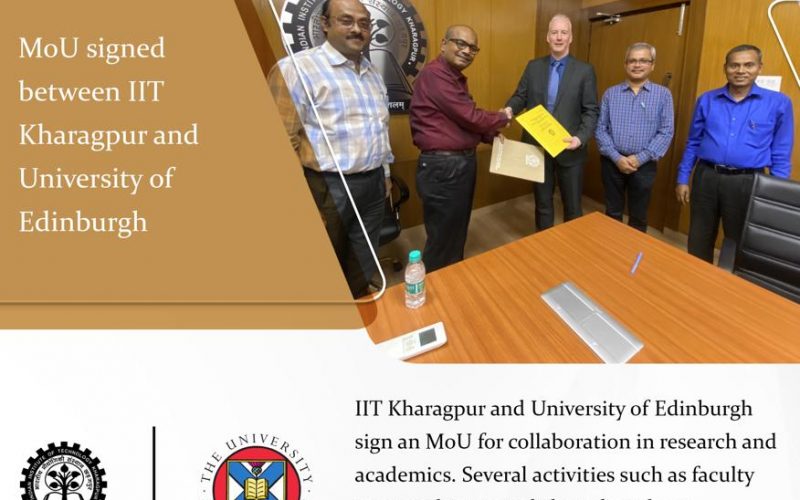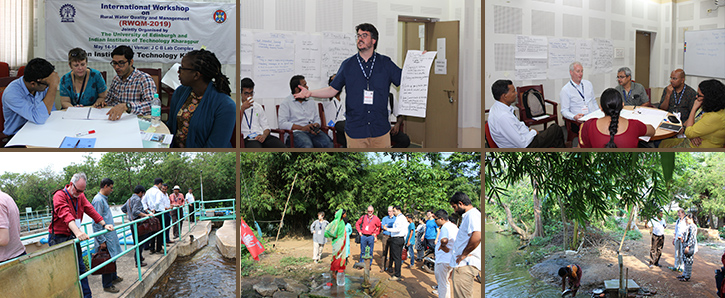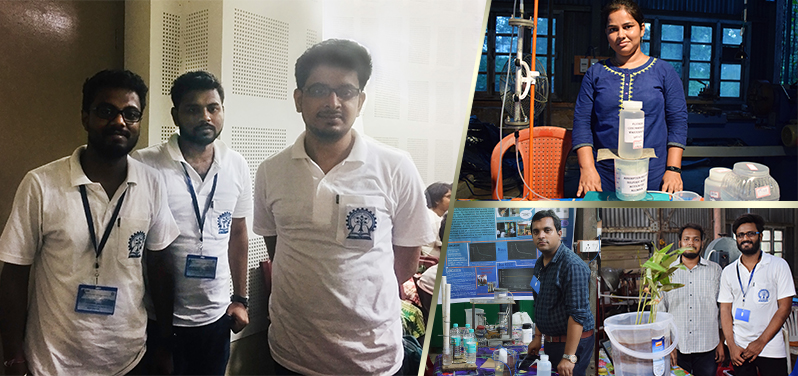
IIT Kharagpur inks MoU with University of Edinburgh
Indian Institute of Technology Kharagpur signed a MoU (Memorandum of Understanding) with the University of Edinburgh on shared academic collaboration in promoting teaching, education curriculum, research and service to the community. Prof. Neil Robertson, Dean International Partnerships, College of Science and Engineering, University of Edinburgh signed the MoU in the presence of his counterpart Prof. Jayanta Mukhopadhyay, Dean Outreach & Alumni Affairs, IIT Kharagpur in the institute campus. Prof. Jayanta Mukhopadhyay, Dean Outreach & Alumni Afffairs, IIT Kharagpur remarked, “This collaboration would orchestrate academic curriculum between both the universities in creating synergy with several academic and research facilities for the…


